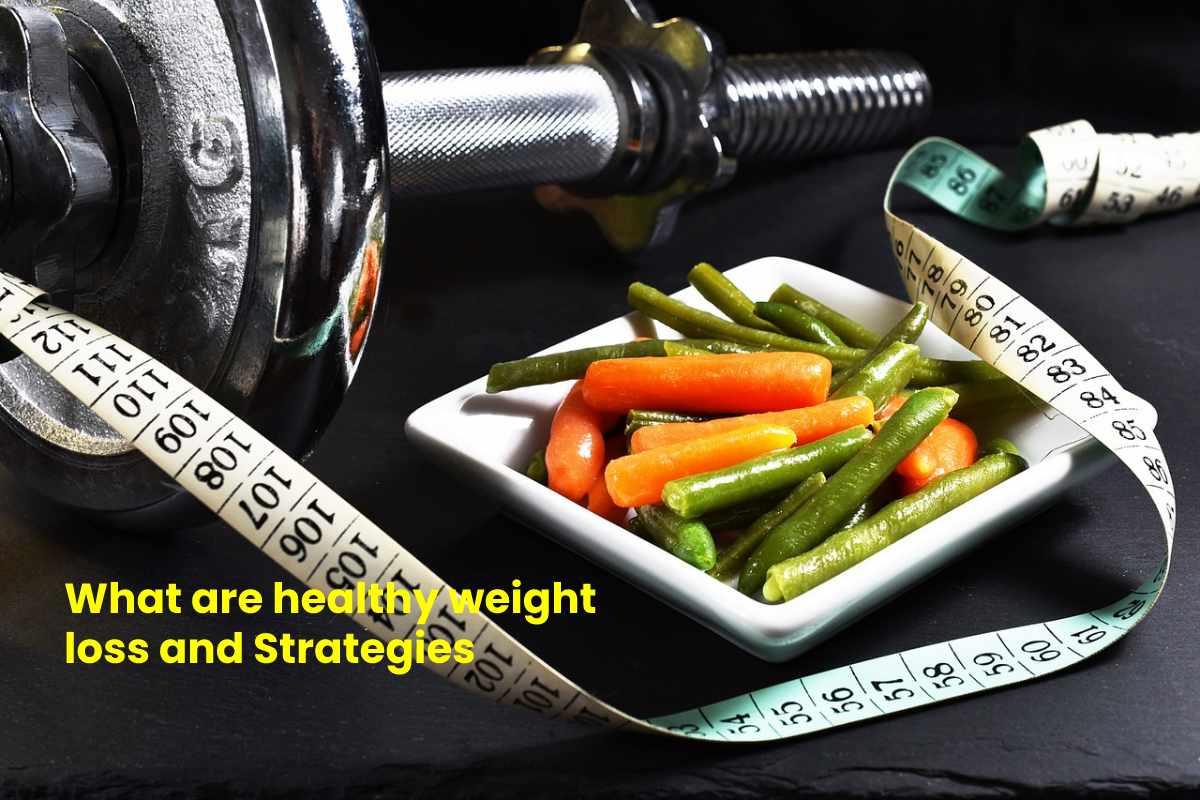Naturally, every person who wants to weight loss wants to do it quickly. However, evidence shows that people who gradually lose weight (1-2 pounds per week) have better results in keeping it off. Healthily losing weight is not just about following a diet or program. It is a lifestyle that includes healthy eating and regular physical activity.
Once you’ve reached a healthy weight, rely on healthy eating and physical activity to help you maintain your new weight long-term.
Losing weight is not easy, and it needs a pledge. But if you’re ready to get underway, we’ve got a step-by-step guide to help you down the road to bulk loss and better health.
Table of Contents
Strategies to achieve weight loss
To accomplish long-term weight loss, you must make permanent changes in your lifestyle and health habits. Here are hundreds of fad diets, weight loss programs, and outright scams that promise quick and easy weight loss. However, the foundation for weight loss remains a healthy, low-calorie diet combined with increased physical activity.
Make sure you’re ready
Long-term weight loss takes time and effort and a long-term commitment. While you don’t want to put off losing weight indefinitely, you should make sure you’re ready to make lasting changes to your eating and activity habits. Ask yourself the following questions to determine your level of readiness:
- Am I motivated to lose weight?
- Am I too distracted by other pressures?
- Do I use food as a means of coping with stress?
- Am I ready to learn or use different coping strategies?
- Do I need additional support from friends or professionals to achieve pressure?
- Am I eager to change my eating habits?
- Am I ready to change my activity habits?
- Do I have the period to make these variations?
Conversation with your doctor if you need help talking about stressors or emotions that seem to be getting in the way of your preparation. It will be easier to set goals, stay committed, and change habits when you are ready.
Find your inner motivation
What will give you the drive to follow the weight loss plan? Nobody else can make you lose weight. It would help if you made diet and physical activity changes to achieve this.
Please list what’s important to you to stay motivated and focused, whether on your next vacation or achieving better overall health. Then see how you can draw on your motivators during times of temptation. For example, you might want to put a note of encouragement on your pantry door or refrigerator.
Although you have to take responsibility for your behavior to be successful at losing weight, it helps to have the proper sustenance. Choose people who support you and positively encourage you, without pity, shame or sabotage.
Ideally, you would find people who listen to your concerns and feelings, do physical activity with you or design healthy menus, and share the priority of having a healthier lifestyle. Your support group can also offer accountability, a solid motivation to stick to your weight loss goals.
Set realistic goals
may seem like a no-brainer to set realistic weight loss goals. But do you know what is natural? In the long term, it’s wise to aim to lose 1 to 2 pounds (0.5 to 1 kilogram) per week. To lose that amount per week, you need to burn 500 to 1,000 calories more than you consume per day, with a low-calorie diet and regular physical activity.
Depending on your weight, losing 5% of your current weight may be a realistic goal, at least initially. If you ponder 180 pounds (82 kilograms), that percentage is 9 pounds (4 kilograms). Even this level of weight loss can lower your risk of chronic health problems like heart disease and type 2 diabetes.
Eat healthier foods

When adopting a new eating style that promotes weight loss, you should reduce your total calorie intake. But wounding calories doesn’t mean giving up taste, satisfaction, or ease of meal preparation.
One way to reduce calorie intake is to eat more plant-based foods: fruits, vegetables, and whole grains. Try to eat a change of foods to reach your goals without sacrificing taste or nutrition.
Start losing weight with these tips
- Eat at least four servings of spuds and three portions of fruit daily.
- Replace refined grains with whole grains.
- Eat healthy fats, such as jade oil, vegetable oils, avocados, nuts, butter, and nut oils.
- Decrease your sugar intake as much as possible, except for the natural sugar cutting-edge fruit.
- Choose low-fat dairy products, lean meat, and lean poultry in incomplete amounts.
Get active and stay active
Although you can lose weight without exercise, regular physical activity combined with calorie restriction will allow you to lose weight more quickly. Workout can help you burn excess calories that you can’t get rid of by dieting alone.
In addition, exercise offers many health benefits: it improves mood, strengthens the cardiovascular system, and lowers blood pressure. Exercise can also help maintain weight gain. Some studies show that those who lose weight and keep it off in the long term do physical activity regularly.
Any extra movement helps burn calories. Think about how you can increase your physical activity during the day if you don’t have time for a formal workout session. For example, go up and down the stairs several times instead of using the elevator, or park in a spot in the parking lot that is far away when you go shopping.
Change your point of view.
Lifestyle changes start when you take an honest look at your eating patterns and daily routine. It’s not adequate to eat healthy foods and exercise for a few workweeks or even months if you want long-term positive weight management. These habits must become a lifestyle.
Maybe you have some setbacks occasionally. But instead of giving up after a setback, start over the next day. Remember that you are planning to change your life. It will not happen all at once. Keep up the healthy lifestyle, and the results will be worth it.
Conclusion
Losing weight also refers to losing bodyweight for the well-being of an individual through physical activity and healthy eating, tools usually grouped under the heading of diets to lose weight.

